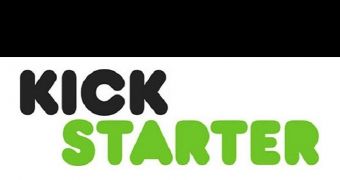The famed platform that has become synonymous with crowdfunding, Kickstarter, has revealed two major changes to its business model, that will have a significant impact on how companies will run their campaigns.
In short, Kickstarter has decided to simplify its rules and relax its barrier for entry even further, up to the point of introducing a "Launch Now" button that allows project creators to bypass the traditional approval process entirely, as the Kickstarter rules change announcement reveals.
This means that whatever you will see on Kickstarter will no longer have any feasibility guarantee or content standards, which in turn will translate into a lower overall chance of projects ever making it to the market. Hardware projects already had a low incidence of success, so that may not bode so well for the future or crowdfunded gizmos, unless you want to make a Star Trek tricorder-like molecular food scanner that can tell you the chemical makeup of what you eat and how to become a superhero, presumably.
This comes as no surprise, as the company was trying to migrate from the general conception that it's a pre-order storefront toward its initial intended role as a community-driven platform for investing in ideas that may or may not turn out to be successful.
As such, Kickstarter has severely trimmed around the edges of its creator's document, resizing it from around 1000 words down to 300, and allowing a bunch of previously banned products, such as sunglasses and bath and beauty projects, and introducing other previously unavailable options.
That means pretty much everything that flies, with the only restriction being that you still have to be honest about it. As such, charity, genetically modified organisms and misleading photo-realistic renderings are still forbidden, but otherwise the floodgates are pretty much open.
The new approval process is also more along the lines of Kickstarter moving consumer perception toward an investment platform, as the previous process, although never billed as an endorsement by the company, was always seen as a form of guarantee by many backers.
The human approval process will now be taken over by a simple algorithm that will scan keywords in the campaign text, check the creator's track record on Kickstarter and other metrics (sugar, spice and everything nice) in order to create a profile, and then compare it to similar projects that have been approved, rejected, flagged, removed or passed with flying colors, and, if everything checks out, the project creator can then simply launch the project, without the need for a human review or feedback from any members of the Kickstarter team.
According to company statistics, Kickstarter was already approving 78 percent of all new campaigns, 44 percent of which managed to secure full funding over the course of the crowdfunding month. The new streamlined process will allow the Kickstarter team to focus on working more in-depth with the creators.
This move is meant to consolidate Kickstarter's already strong position (more popular than the actual "crowdfunding" term), in the face of its main competitor, Indiegogo. Kickstarter is already doing a pretty good job, with its campaigns raising more overall dough and being more likely to meet their goals, and the rule loosening is the final push it needs to get on top.
Hopefully, this won't mean that we'll see a rising incidence of snake oil and homeopathic treatments popping up on Kickstarter.

 14 DAY TRIAL //
14 DAY TRIAL //